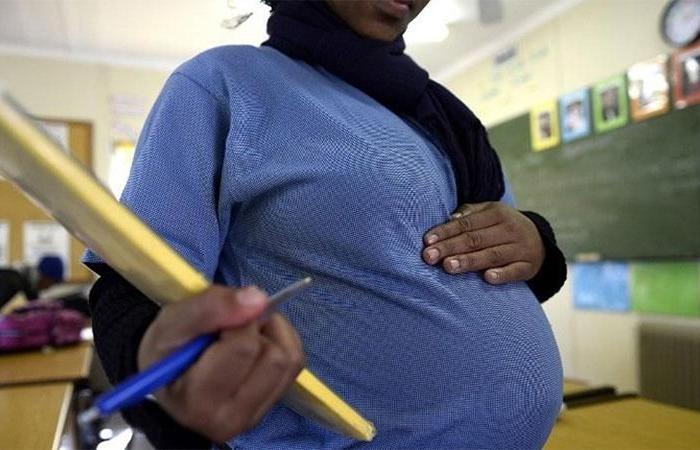In Senegal’s classrooms, a silent crisis is brewing, threatening to destroy the futures of thousands of girls. Teenage pregnancies, which are often the result of deep-rooted cultural practices and a lack of access to reproductive health education, force many girls to leave school prematurely.
According to a UNICEF report published in 2023, nearly 14% of girls aged 15 to 19 in Senegal are either mothers or pregnant. This figure highlights a problem that not only compromises the lives of the girls affected, but also perpetuates cycles of poverty and inequality.
Teenage pregnancies have immediate and long-term repercussions. When a teenager becomes pregnant, she is often forced to drop out of school. Deprived of education, she faces limited employment prospects and economic and social dependence. According to UNESCO, 42% of girls in sub-Saharan Africa do not complete primary education. This lack of education limits their access to the job market, exacerbating inequalities.
In many cases, teenage pregnancies are the result of child marriage, particularly in some rural areas where this practice is common.
In Dakar, Aïcha, 23, recounts how child marriage and subsequent dropping out of school had a negative impact on her life.
“I wanted to become a teacher. But when I was 14, my parents decided that I should get married. I had to drop out of school and today I have no qualifications. I am totally dependent on my husband to survive,” laments the young woman.
Like Aïcha, Fatou, 27, also suffers the consequences of an incomplete education due to child marriage.
“Without a diploma, I could not find a stable job. I remained in a marriage where I was neither respected nor listened to. Leaving was not an option because I had nowhere to go,” confides the young woman, now a mother of two children.
Aïssatou, married at 17 to Kolda, left school after her first pregnancy.
“My husband forbade me from continuing my studies,” she says.
Stories like Aïssatou’s highlight the persistence of traditions that hinder girls’ empowerment. A brilliant student, she now cleans for her in-laws.
“Today, I cook, clean and do all the household chores. When I left school, I was in the fifth grade in middle school, but because of my pregnancy, I had to drop out. It was increasingly difficult to combine caring for in-laws, studying and being pregnant. But I was good at school, I was always in the top ten in my class,” she adds wistfully.
Teenage pregnancy figures are worrying: Senegal’s 2023 demographic and health survey reveals that 10,1 % girls aged 15 to 19 began having children. Among girls aged 15 to 17, 7 % have started childbearing, which includes those who are mothers (5%) and those who are pregnant with their first child (2 %). This percentage increases to 22,4 % among 19-year-olds.
In 2020, of the 1,977 births recorded in a Senegalese hospital, 243 involved children, some of whom were under 14 years old.
In a context where sex education is still a taboo subject, many young girls do not have the essential information to make informed decisions about their reproductive health. Additionally, lack of access to sexual and reproductive health services plays a role in increasing the number of unplanned pregnancies. The 2023 DHS indicates that among girls and young women aged 15 to 19, the unmet need for contraception is 19,7 %, dont 19,1 % for the spacing of pregnancies and 0,6 % for limiting pregnancies. These figures reflect the percentage of young women who want to delay or avoid pregnancies but are not using any method of contraception.
“I didn’t know I was pregnant until the third month. I was afraid to tell my mother,” says Mariama, 16 years old. Like Mariama, many young girls become pregnant due to lack of information.
“Lack of sex education and social pressure play a major role in these situations. Many girls do not know their rights and do not know how to protect themselves,” explains Fatou Bâ, social worker at the Pikine health center..
As a result, schooling is often disrupted. According to the Ministry of Education, more than 3,000 pregnancy-related school dropouts were recorded in 2022.
“It’s a double burden: they lose their education and become economically dependent,” explains Marième Diop, coordinator of an NGO defending women’s rights.
Beyond school, girls face serious medical consequences. Pregnancy-related complications are one of the leading causes of death among adolescent girls because their bodies are not equipped to handle the physiological demands of pregnancy. The maternal mortality rate among girls aged 15 to 19 is 0.03 deaths per 1,000, or 5.6% of maternal deaths in Senegal, according to the 2023 EDS.
Adolescent girls are also exposed to the risk of psychological trauma following an unplanned pregnancy or childbirth in precarious conditions. Additionally, access to adequate health care remains limited in many rural areas, worsening the situation for these young girls.
Cultural practices play a central role in perpetuating this problem. Child marriage, for example, is still a common practice in Senegal, despite laws prohibiting it. A quarter of girls marry before the age of 20, often under social or family pressure. Child marriage is often followed by pregnancy, leading to considerable health risks for adolescent mothers, including high maternal mortality, obstetric complications, sexual health problems and the risk of unsafe abortions.
Despite the efforts of authorities and international organizations, teenage pregnancies remain a significant challenge in Senegalese schools, threatening the educational and professional prospects of thousands of young girls. However, initiatives are emerging to combat this problem. The Filles Debout association, for example, runs awareness campaigns on sexual and reproductive health in schools.
“We speak directly to girls, but also to boys, to empower them,” explains Aminata Sow, president of the association.
The Ministry of Education, in partnership with NGOs, has also launched a school reintegration program.
“We offer psychological support and remedial classes to help these girls return to their studies,” explains Abdoulaye Sarr, academic inspector.
Teenage pregnancies in Senegalese schools are not just an individual problem; they reflect the structural inequalities that affect girls in many societies. To combat this problem, it is essential to adopt a multidimensional approach combining education, awareness campaigns and improving access to health services.
It is essential to provide young girls with the knowledge they need to protect themselves and make informed choices through comprehensive, age-appropriate sexuality education. Introducing sex education classes in schools could help break taboos and raise awareness of reproductive health issues among boys and girls.
Additionally, it is essential to expand access to sexual and reproductive health services. This includes providing contraception and counseling services, particularly to adolescent girls in rural areas where these services are often not available.
Additionally, campaigns to change social and cultural norms that encourage child marriage must be prioritized. It is equally important to support young mothers so that they can return to school. Finally, school reintegration and vocational training programs should be put in place to help young mothers continue their studies and become independent.
By taking a comprehensive approach to combating child marriage and early pregnancy, Senegal can reduce the number of teenage pregnancies, unlock the potential of its young population and give these girls the future they deserve.
This article was produced by Ndeye Fatou Touré as part of the Africa Women’s Journalism Project (AWJP) with the support of the International Center of Journalists (ICFJ) as part of the Reporting Grant for Women Journalists in Francophone Africa.






